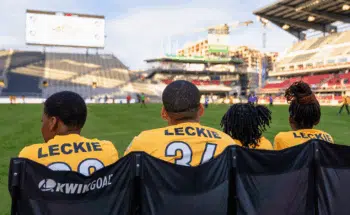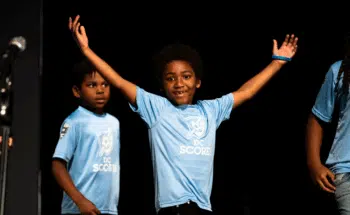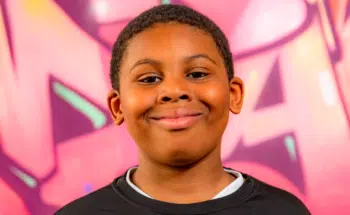“We Hungry!”: Brian Anderson On Building Kids’ Self-Confidence and Potential Through DC SCORES
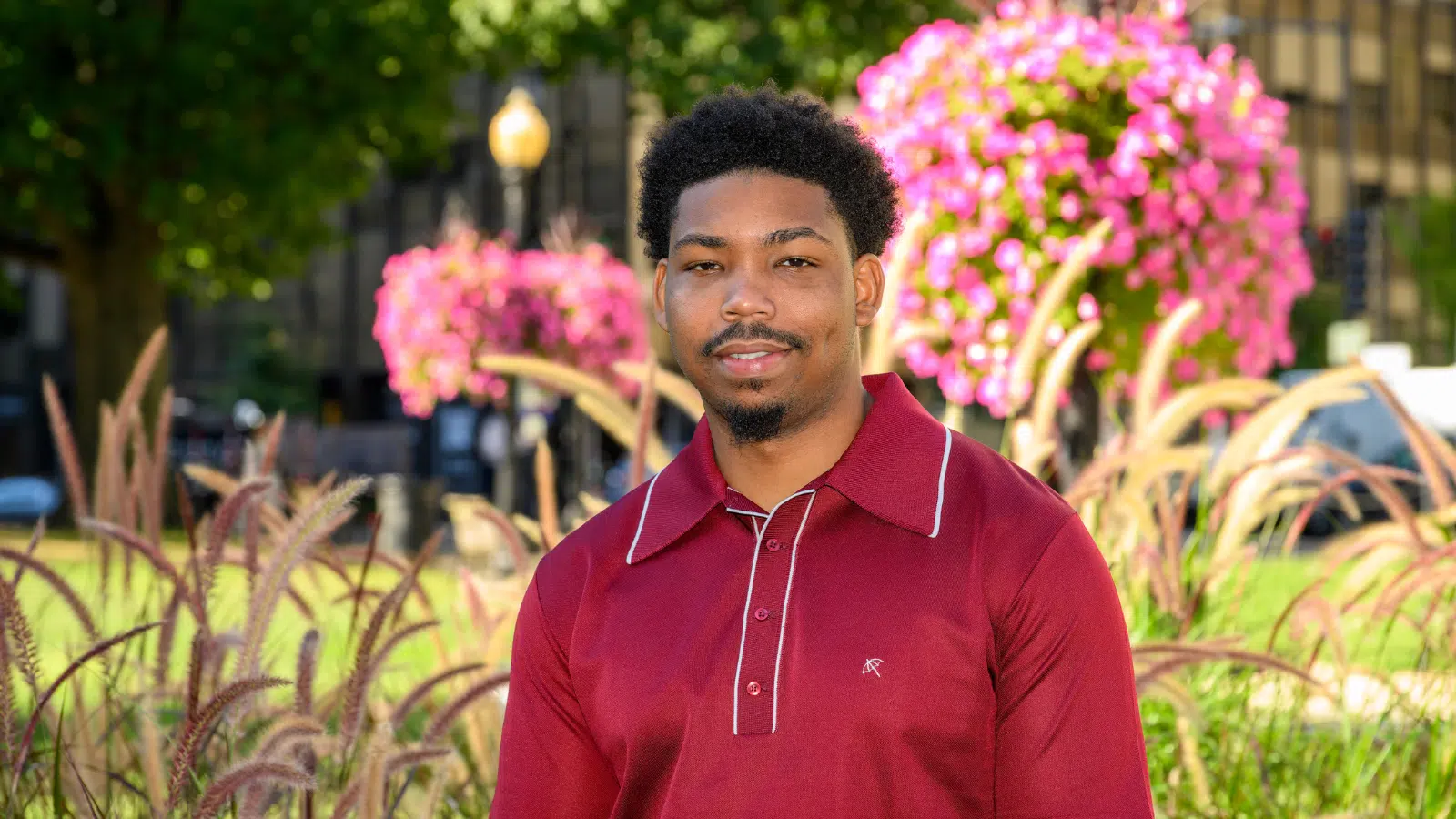
The walls of Brian Anderson’s cubicle in DC SCORES’ downtown office are papered with mantras and affirmations. “If God is for us, who can be against us…Nobody,” says one hand-written note, which is stuck on his monitor next to another reminding him to “stay resilient on [his] path.”
The decor reflects the ambition that has led Anderson through an impressive career working at the nexus of sports and youth development, including at organizations such as the United Nations and the Special Olympics.
The notes also underscore the confidence and self-worth that Anderson hopes to instill in the poet-athletes he encounters through his work as an Associate Manager for Programs at DC SCORES.
“I want to help kids get on a different path at an earlier age,” he says, “to take themselves seriously and want more for themselves.”
Community in Sports
When Anderson first heard about DC SCORES, he was struck by how much the organization’s work resonated with his own life.
Through soccer, poetry, and service-learning programs, DC SCORES focuses on serving young people from historically marginalized communities. The neighborhoods the nonprofit works in are not dissimilar to the East Baltimore community where Anderson grew up.
“People always talk about, ‘Baltimore people aggressive,’” Anderson says, rolling his eyes. “We aggressive because we hungry, we aggressive because we want more for ourselves!” Though East Baltimore has been made infamous by media portrayals of gun violence and gang activity, Anderson remembers a community that was caring and aspirational.
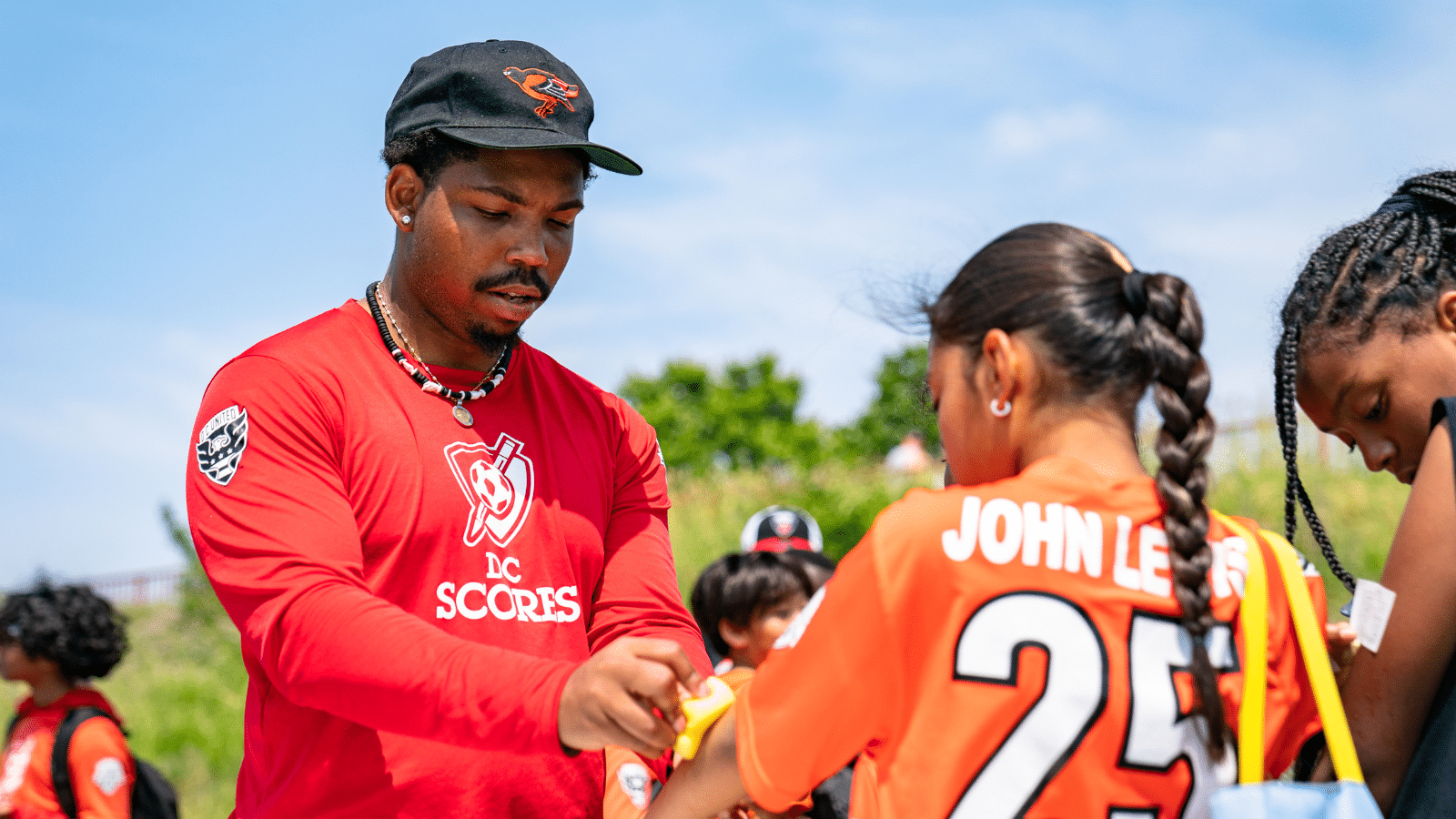
Anderson applies a temporary DC SCORES tattoo to a poet-athlete’s arm at this year’s Jamboree festival. Photo: Cody Cervenka.
He tapped into this community support system through sports. A talented young athlete, his love of basketball and football connected him to a local network of teams and coaches that invested intensely in his success.
“Basketball was an entryway into a whole different family, a whole different community,” he explains.
When Anderson was in middle school, family circumstances forced him to move by himself to Philadelphia. The support of his coaches and teammates at Baltimore’s Cecil Kirk basketball team helped him cope with living in a new city where he had few connections.
“When I had no money, Dudie, my coach, was paying for my bus tickets to Baltimore for me to play every weekend on my travel team,” he remembers. He adds, “If it wasn’t for my sports community carrying me along from when I was eight years old until I was eighteen, I wouldn’t know where I would be.”
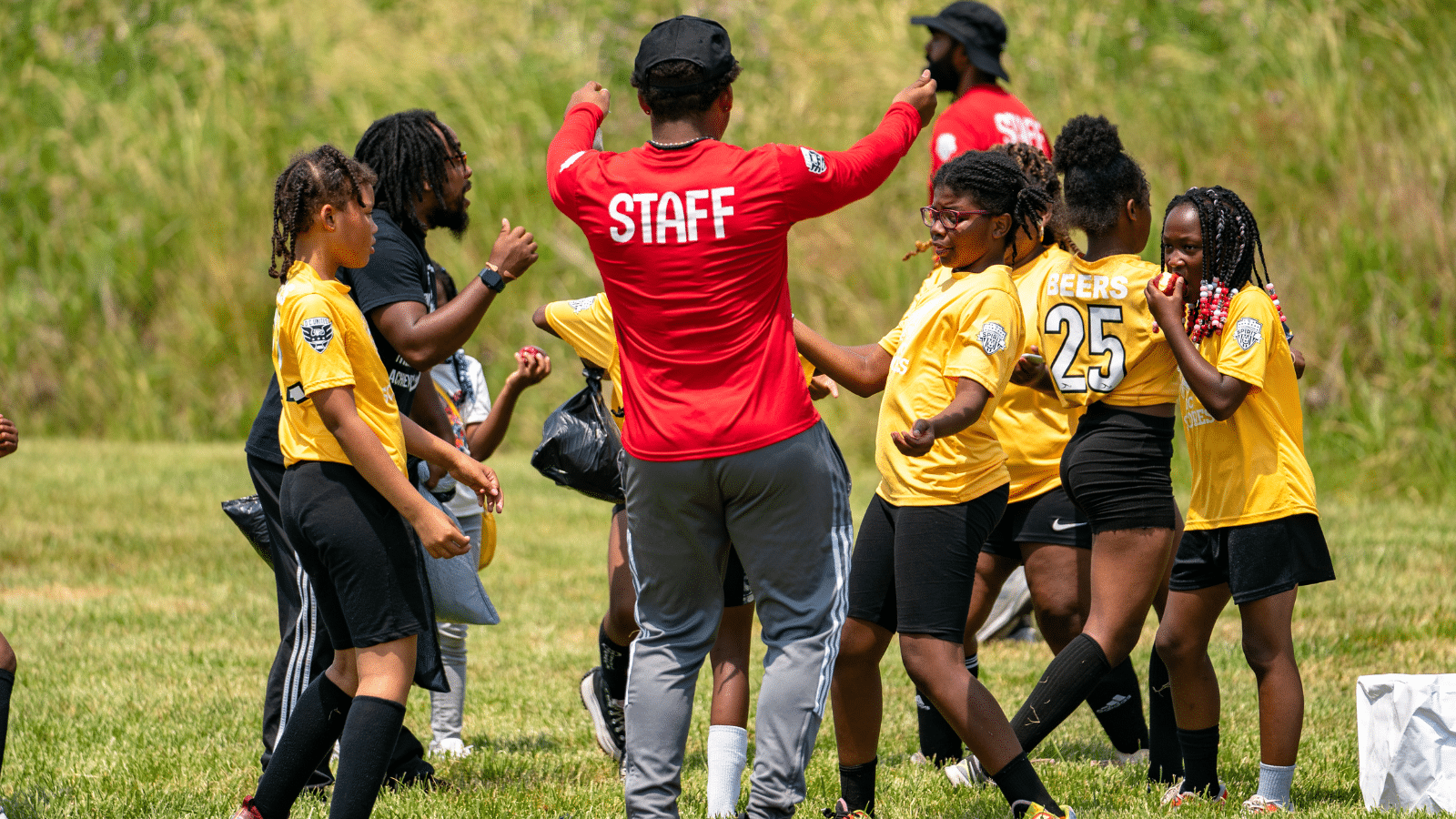
Anderson dances with the DC SCORES team at Anne Beers Elementary School. Photo: Cody Cervenka.
An International Outlook
As it turned out, Anderson’s career would take him all over the world.
His coaches’ investment in his talent paid off when, at age eighteen, he began his undergraduate studies as a varsity athlete, first at Albright College and then at Salisbury University.
It was as a communications and international relations student that Anderson identified a new passion: travel. “Albright was a international school, there were a lot of African American students that was traveling,” he remembers. “ I was like, ‘Dang, I can do this, too!’”
Few people in Anderson’s family and circle of friends had traveled outside the US, so he began to look for opportunities that would enable him to see the world. He served as Salisbury’s Campus Ambassador for the United Nations, a role that included attending a conference at the multilateral organization’s headquarters in New York City.
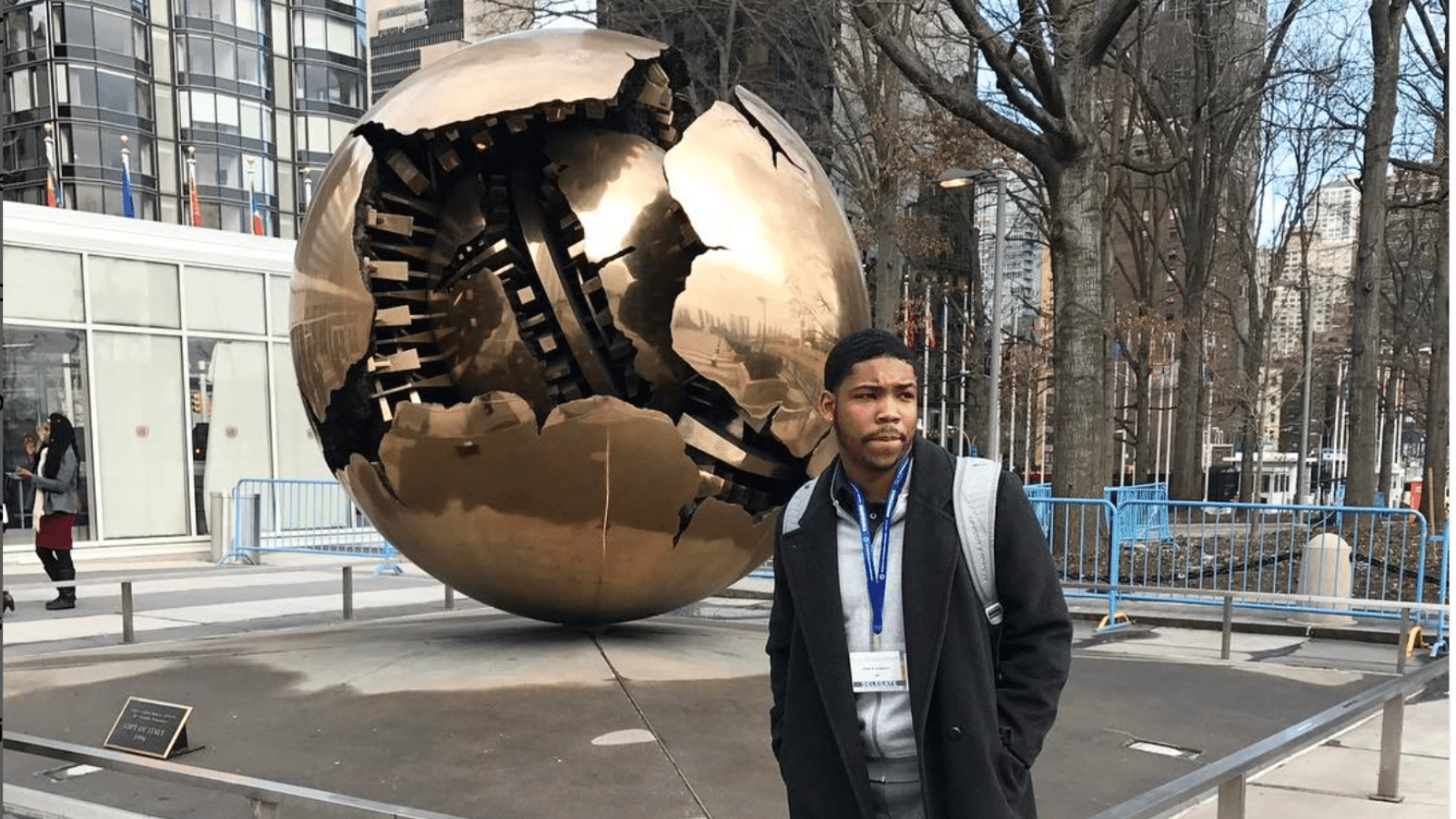
Anderson has worked with the UN at various points throughout his career.
As he looked around the conference hall, Anderson remembers realizing that nobody else in the space shared his background. “There were no Black people from marginalized urban communities,” he says. “I began asking, ‘Why aren’t my people traveling? Why aren’t my people interested in these ideas?’”
The experience inspired him to establish BTheMogul, a storytelling brand that promotes global entrepreneurship and inspires young Black men to travel. BTheMogul’s online presence often revolves around Anderson’s personal accounts of his travels, many of which connect to sports.
There is the story of how he was invited to join a game of wheelchair basketball in Hungary. (“They didn’t know me from a can of paint and maybe one other person knew English,” he remembers fondly, “But, with sport, you don’t need to know the language, you just need to know the game.”)
There is also the ten months he spent in Paris as a UNESCO consultant evaluating how to leverage sports to advance the UN’s education goals. Or the time he spent this summer supporting delegations of athletes competing at the Special Olympic Games in Berlin.
Storytelling is another way Anderson connects to DC SCORES’ mission, which uses poetry to amplify youth voices as they explore the world around them. “I want to tell people about my experience,” he says. “It’s just a whole different world out there, and I want everybody to see it!”
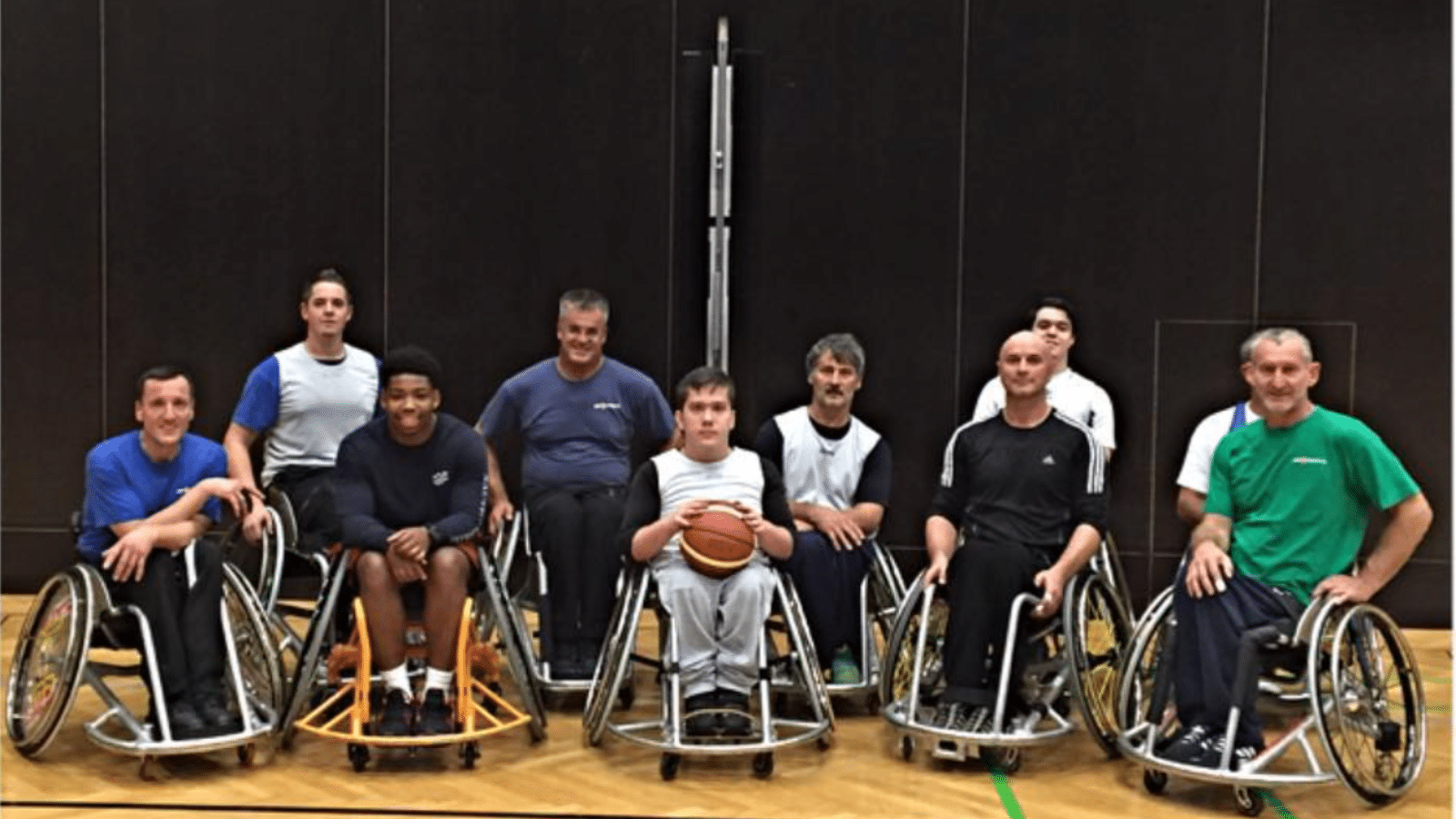
Anderson says basketball has been a way to engage with people around the world, including members of a wheelchair basketball team in Hungary.
“Our Responsibility”
Yet, perhaps surprisingly, all this international work led Anderson to have a deeper appreciation for local perspectives and awareness.
“Diplomats and international aid workers are generalists,” he explains. “They always had to reach out to specialists who understood the communities they’re working with.”
Often, Anderson stepped into that role, championing the voices of urban communities of color in spaces where they were severely underrepresented. “You have to have a niche understanding of what you’re doing and the community you’re working in,” he says.
That’s one of the things that appeals so much about working in the District, just an hour away from his hometown. “It’s like being able to touch home. I understand the need for programming such as DC SCORES. For me, it’s the most optimal space to be in,” he shares.
As an Associate Program Manager, Anderson is the DC SCORES liaison with eight school sites. His day-to-day work involves ensuring that each program has the equipment, information, and support they need to successfully implement DC SCORES’ award-winning model. However, he has also drawn on his large international network to connect poet-athletes to additional opportunities outside DC SCORES’ standard program.
For example, he is currently working with coaches at H.D. Cooke Elementary School and San Jose Earthquakes striker Jeremy Ebobisse to create a new multi-sports space at the school. The project will be implemented by the Over Under Initiative, which utilizes existing basketball courts and black tops to introduce kids to a wider array of sports.
The facility at H.D. Cooke is similar to another enterprise spearheaded by Anderson at Seaton Elementary School, where he worked with Major League Soccer, the U.S. Soccer Foundation, and Design FC to build a new mini-pitch.
In a moment Anderson describes as his “best yet” at DC SCORES, the new pitch was unveiled as part of celebrations for MLS All-Star Week in July and featured appearances from professional soccer players alongside a poetry performance by the Seaton DC SCORES team.
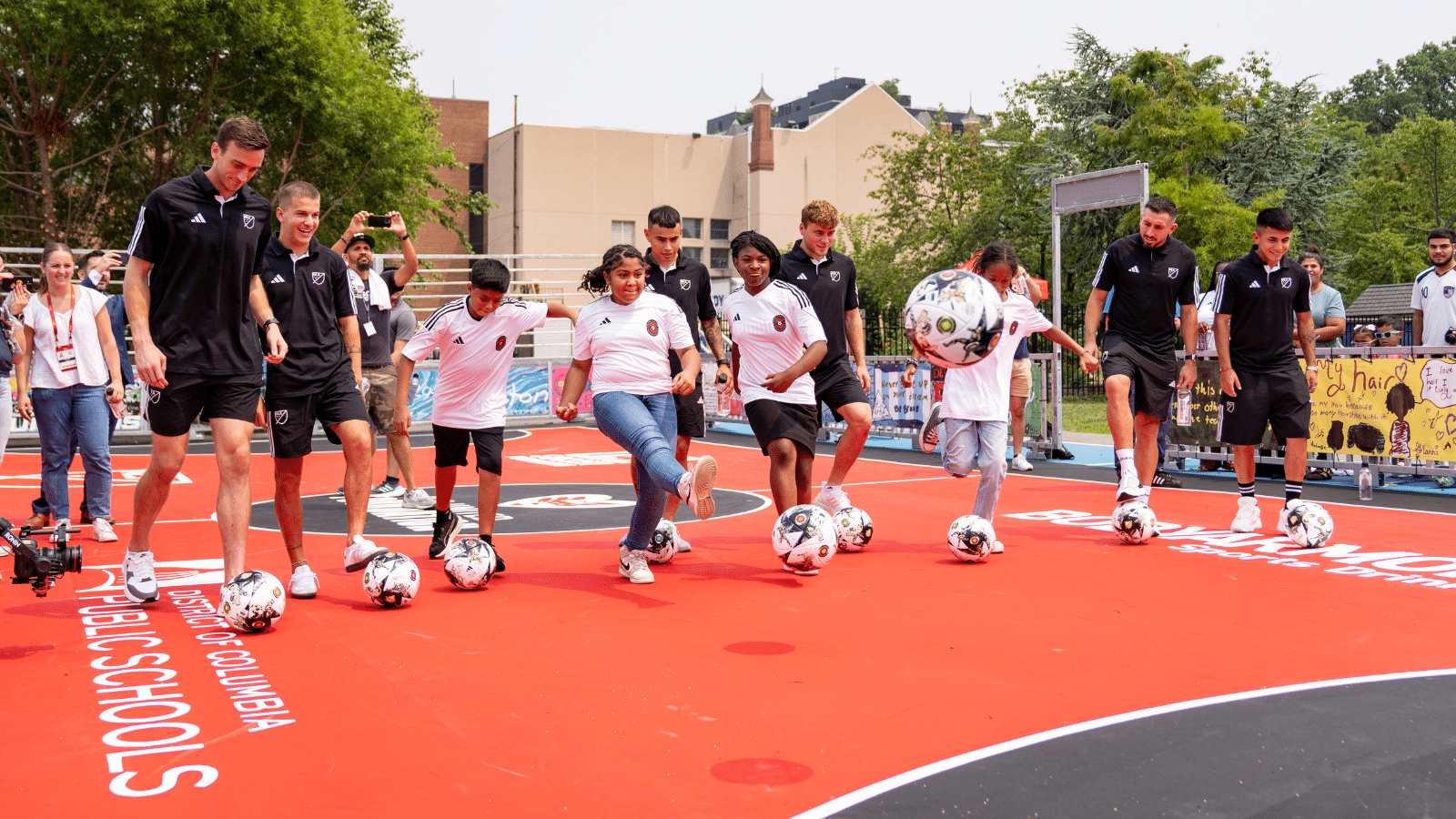
Seaton poet-athletes take the first kick on their new mini-pitch during an MLS Community Day this July. Photo: Cody Cervenka/D.C. United.
Though the celebrity meet-and-greets were a highlight for the Seaton team, Anderson says the day was more than just an opportunity for the poet-athletes to add a signature to their autograph book. He explains that partnerships like these boost kids’ self-esteem and show them that they are deserving of high levels of investment and attention from their role models working for major institutions.
Through his work at DC SCORES, he is dedicated to continuing to unlock poet-athletes’ sense of self-worth and make sure they receive the best resources DC, and the world, have to offer.
“Communities like ours aren’t often spoken about in a manner of respect,” he says. “But,” he adds, “as a community, we can’t give up. My job is to speak love into our youth and tell our kids, ‘I see the good in you, I see your worth and value. That’s our responsibility at DC SCORES.”

